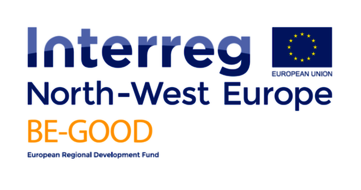Open data for a smarter society
Published on 10/12/2018
In the framework of its activities in IT for Innovative Services (ITIS), the Luxembourg Institute of Science and Technology (LIST) is a partner of the Interreg North-West Europe “Building an Ecosystem to Generate Opportunities for Open Data” (BE-GOOD) project. What about the open data context, transnational opportunities and about BE-GOOD mi-term results?
Open data in data driven economies
In a digital world, data is a key asset and a major source for innovation and economic growth. Open data in particular, as data that can be freely used, shared and built-on by anyone, anywhere, for any purpose, was expected to create enormous amounts of economic activity and growth opportunities. However, the promise of the data-driven economy lies to a large extent in the development of new services. In order to make the promise of the data‐driven economy a reality, it is therefore necessary to increase reuse and value extracted by services from data.
In this context, BE-GOOD was launched for a duration of four years in 2016. BE-GOOD intends to foster the economic value of the open data through the emergence of an innovative open data ecosystem supporting the re-use of open data. In BE-GOOD various leading open data initiatives make it their explicit ambition to contribute to the dual trends of reducing cost of public services delivery and supporting the development of commercial solutions based on Public Sector Information (PSI). LIST is currently the lead technical partner of BE-GOOD, in charge of the methodological and technical issues, collection of the lessons learned, and definition of the BE-GOOD methods.
Issue driven approach and transnational opportunities
The BE-GOOD approach is based on identifying ´Challenges´ defined by civil servants, who are already producing and using public data and often have a deep understanding of the technical issues related to their missions. Before being outsourced to the market, challenges’ ideas are ranked against several criteria to assess their relevance. Currently, eleven challenges are being developed in BE-GOOD with a focus on waste water management, predictive infrastructure maintenance, mobility and transport and finally, quality of living. BE-GOOD addresses specific barriers that are related to data publication for commercial use and searching for transnational/scalable challenges. This includes making data readily re-usable (e.g. machine readable, standardised data formats or data models), testing data licensing types, and regimes for charging fees. Although BE-GOOD has a strong focus on “open” data, the project team expects that the business challenges will be a combination of both public open data, private data or a co-creation of new kinds of data.
BE-GOOD considers transnationality as an opportunity to mitigate several barriers faced by open data initiatives. It aims to participate in the overcoming of this market failure by focusing on transnational cooperation and where possible on transnational challenges. The main benefit of a transnational solution is to increase its potential profitability by addressing the needs of a larger market, where it could meet the needs of a wider set of customers. When possible, challenges explore transnational procurement options.
Innovative procurement is the key
BE-GOOD explores the opportunities provided by the reform of the European directive EU-2014 on public procurement and to assess the suitability of the procurement procedures allowed in the European Union. A review of the procurement instruments available in the European Union was made in order to engage solution providers and organize public-private collaboration, particularly through innovation partnerships, tenders, data contests, competitive dialogues, etc. As challenges are varied, they use different kinds of procedures. An ambition is to hold open competitions to reach as many potential service providers as possible, to maximise the opportunities to create innovative solutions. Reaching market uptake by designing and implementing sustainable business models for the challenges remains the main objective.
So far, BE-GOOD mid-term results are positive with the successful management of the challenges. A technical meeting was organised from 3rd to 5th December 2018 at LIST. In terms of planning, for the upcoming months, the project team expects the open data from each challenge to get exposed and become more visible. As stated by Slim Turki, BE-GOOD project manager: “We expect that all challenges will successfully finalise their procurement process. On transnationality we hope that challenges will focus on exploring the portability of their prototype to other locations, both on technical level (data) and business level (market).”
> For any further information on this topic, please contact Slim Turki directly via email.







